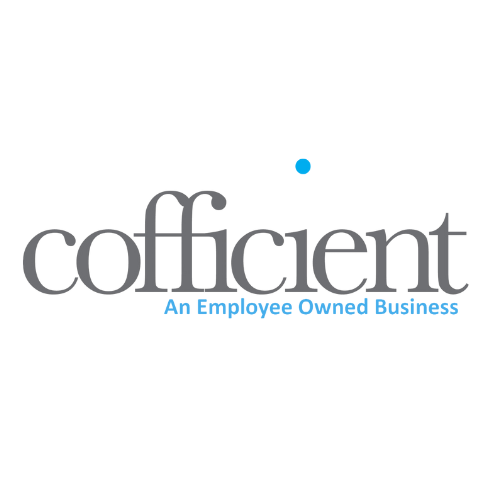
How To Get More Efficient Financials
Businesses are living in a time where technology and society are changing faster than they can naturally adapt.
It is time to take advantage of the opportunity for change rather than operating reactively, continually a step behind.
Several questions must be answered to move out of the stone age, get more efficient financials, and into a more flexible, modern way of working.
What makes a highly efficient Chief Financial Officer?
A highly efficient Chief Financial Officer possesses a diverse range of skills and qualities that will allow their businesses to propel to success through adapting to the pace of digital transformation.
Successful CFO’s recognise the crucial role that digital technology plays in the business’s day-to-day running to achieve sustainable profits and effective growth. CFO’s must be knowledgeable on the technological alternatives on the market and available to the organisation so that they are ready to implement these if and when they will improve business operations.
CFO’s should not adopt a new platform or technology simply because it is ‘innovative’. A CFO needs to evaluate the business’s needs and core priorities, the options available, and only allocate budget to the most cost-effective technology likely to succeed and benefit the organisation. CFO’s must be data-driven – using data to speed up and simplify processes and drive more significant innovation by focussing on value-added services.
To drive real innovation, CFO’s must create an ‘open book’ approach to organise data so that employees at all levels feel empowered to co-innovate, thus creating a more positive work culture, stronger teams and stronger relationships.
Most importantly, highly effective CFO’s understand that the most significant organisational risks stem from simply doing nothing. Innovation must be embraced to achieve the organisation’s financial and business goals.
What are the best tools for planning, budgeting and forecasting?
When it comes to planning, budgeting and forecasting, spreadsheets fall short in collaborative planning, information management and scenario modelling. Using old tools and processes such as spreadsheets for financial planning and analysis creates challenges for organisations such as error-prone data, inflexible consolidation and inefficient collaboration.
A cloud-based solution will work best for your organisation if you’re looking for greater control, increased cooperation and improved visibility, ensuring that data is centralised and automated and accessible in real-time to all those that need to see such information. This will increase engagement, participation and accountability and allow teams to spend more time understanding and analysing business trends and performance drivers.
Why spend unnecessary time, energy, and resource fighting with a tool to do what you need it to do? Implement cloud-based planning and budgeting solutions so that your employees can focus on analysing performance data, frequent re-forecasting and making the right decisions to grow the business.
What financial provider should I be going for?
As more organisations start to understand cloud computing benefits, a growing number are choosing to shift as many applications as possible away from their on-premises infrastructure.
This means that Enterprise Resource Planning must also move to the cloud for a business to reduce the percentage of its application portfolio on-premises. Your business’s position as a first-time buyer or an ERP replacement buyer, with an established, more extensive and slower-growing company, will play a part in the choice of a cloud ERP system.
Cloud-only providers such as NetSuite, Plex, Workday and Rootstock focus their entire business on the cloud, which results in fewer compromises and maximum benefits in terms of speed, agility and scalability.
Traditional ERP vendors such as Infor and Microsoft are often growing their cloud offerings at a faster rate than their on-premise offerings but at a slower rate than cloud-only providers. Due to their position of having no on-premise customers, cloud-only providers have a significant cost advantage. They tend to display on-demand self-service, broad network access, resource pooling, rapid elasticity and measured service to a greater extent than traditional ERP providers. However, both providers have historical strengths.
Cloud-only has an advantage in terms of speed and agility with regular and fast upgrades; traditional vendors usually maintain several versions of their systems to allow customers to stay on older versions for more extended periods of time. However, customers rarely benefit from this.
Cloud-only providers also have the advantage of focus as they are only serving one type of customer, this means their offering is usually seamless; traditional ERP vendors suffer from divided attention with most vendors having less than 10% of their customers running under their cloud offerings.
A cloud ERP system’s choice is a huge decision, and there is by no means a one size fits all package.
Buyers must understand their organisations’ essential requirements and the various approaches to ERP to make the right choice and be successful in their implementation.
Why should I upgrade to NetSuite Financials?
Embraced by young companies, NetSuite has never been a desktop product; it has always been a multi-tenant solution. This means that the hosted product is frequently upgraded and holds a solid code base. There are many benefits to choosing NetSuite Financials, including the delaying of finance and operations hires.
Automation frees up time which allows employees to focus on revenue-generating projects and analysis. Billing and invoicing are streamlined to reduce manual data entry and avoid errors; automated billing and invoicing will enable you to collect cash and reinvest back into the business quickly.
Financial close time and manual data entry are reduced, and companies can take advantage of lower audit costs. NetSuite is a platform for innovation allowing you to launch new business models with ease and grow internationally with its ability to evaluate all thingable ways to scale and boost revenue; NetSuite supports multi-currency, multi-entity and different accounting standards.
Put simply, moving your organisation to NetSuite’s integrated suite of cloud-based solutions will allow for more efficient and effective business operations, which will enable you to grow your business and enable employees to respond to client and organisational needs in real-time.
To adapt to the rapidly changing digital landscape, organisations must quickly respond to market conditions, opportunities, and evolving customer expectations by recognising the need to innovate and implement changes accordingly.
If you’d like to see a demo of NetSuite Financials in action, get in touch.



